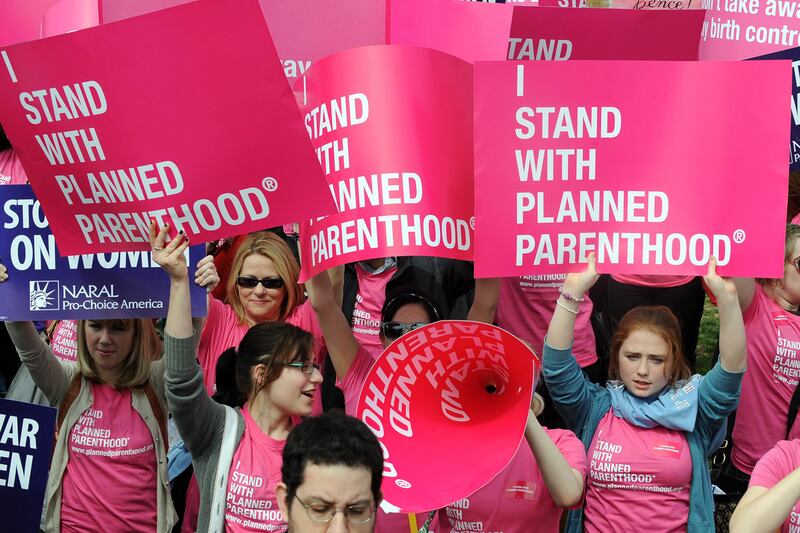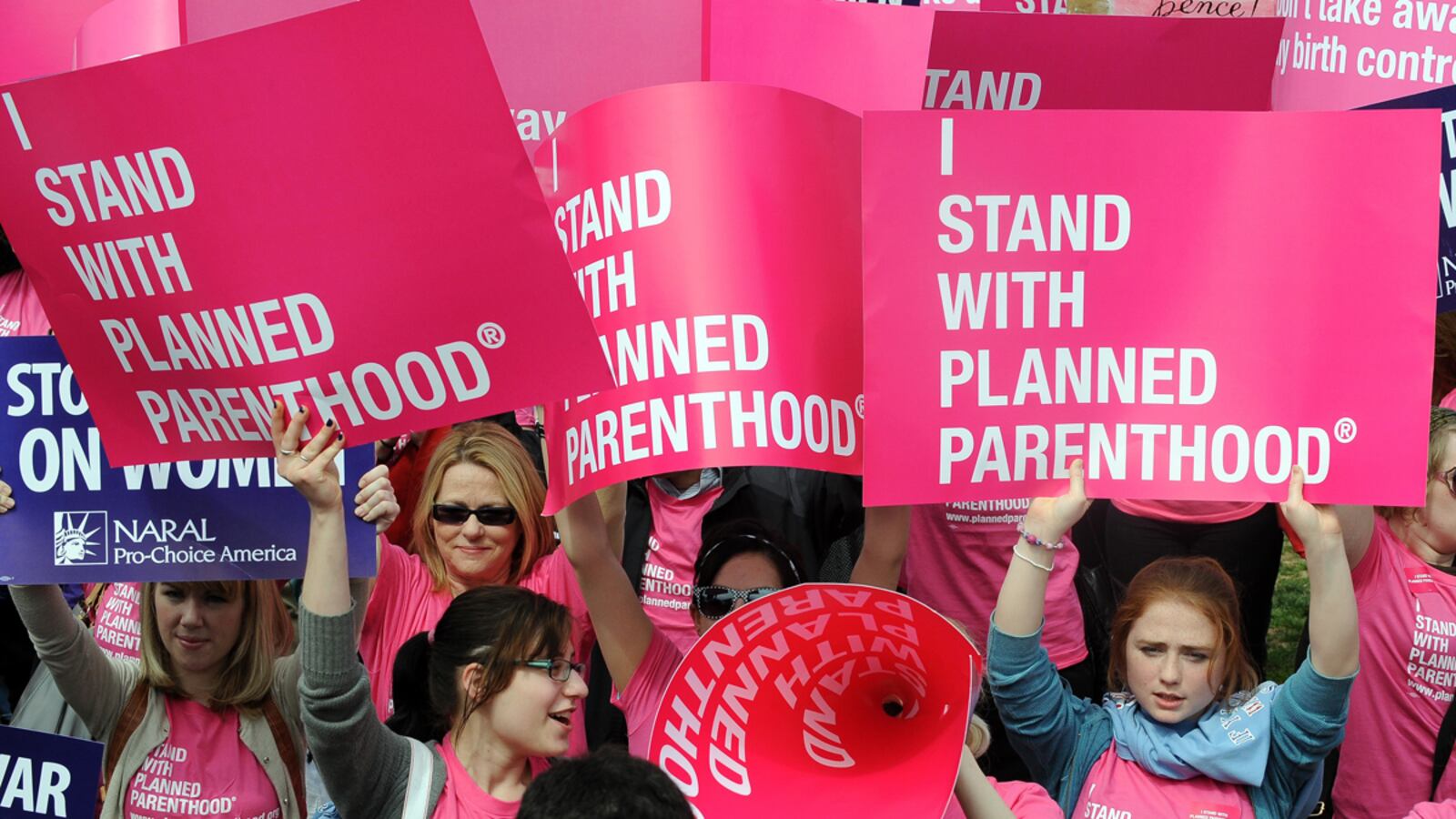The constant fusillade of attacks on Planned Parenthood is so relentless that it can be easy to forget how much support the organization still has. That seems to be what happened to Susan G. Komen for the Cure, which faced an overwhelming backlash from its supporters after bowing to pressure from the right to stop funding the nation’s largest family- planning provider. And so on Friday, Komen reversed itself, with founder and CEO Nancy Brinker saying in a statement: “We want to apologize to the American public for recent decisions that cast doubt upon our commitment to our mission of saving women’s lives.”
Despite Komen’s denials, there was never any doubt that its break with Planned Parenthood was purely political. Just last March, the organization touted Planned Parenthood’s importance to its work, writing, “While Komen Affiliates provide funds to pay for screening, education and treatment programs in dozens of communities, in some areas, the only place that poor, uninsured or under-insured women can receive these services are through programs run by Planned Parenthood.”
The only thing that changed in the interim was the hiring of a new, anti-abortion senior vice president, Karen Handel, as well as the ratcheting up of pressure from Republicans and conservative activists. Looking for political cover, it used Rep. Cliff Stearns’s investigation into Planned Parenthood as a pretext, even though such right-wing inquiries are routine, and Komen’s own board members didn’t take this one seriously. “People don’t understand that a congressional investigation doesn’t necessarily mean a problem of substance,” board member John D. Raffaelli told The New York Times. “When people read about it in places like Texarkana, Tex., where I’m from, it sounds really bad.”
Komen’s action lent legitimacy to the investigation, which is one reason the decision sparked such an uproar. “What I think you see happening right now is so many women who have had such positive relationships with Planned Parenthood are sick and tired of it, and so they’re finally coming out of the closet saying so,” says former Planned Parenthood president Gloria Feldt.
Soon after Komen’s decision was announced, thousands of people expressed their outrage on Komen’s Facebook wall. Rep. Jackie Speier (D-Calif.), denounced Komen’s “political decision” on the House floor, saying, “I have been a big booster of the Susan G. Komen organization, but not anymore.” Rep. Mike Honda (D-Calif.), whose wife died of ovarian cancer and whose chief of staff has battled breast cancer, called Brinker on her cellphone to ask her to reverse her decision. “This issue touches the congressman and everyone on team Honda very, very personally,” says his communications director, Jack d’Annibale.
Honda’s office then drafted a letter to Brinker, which was signed by 36 members of Congress. “This is an alarming development resulting from political pressure from anti-women’s health organizations,” it said, “We ask—in the strongest possible terms—that Susan G. Komen reconsider its decision, as the health of millions of brave women everywhere demands the same kind of bravery exhibited from the Komen Foundation.” In the Senate, Patty Murray and Maria Cantwell wrote a similar letter, which two dozen of their colleagues signed.
While Komen was being lambasted, Planned Parenthood received a flood of support, raising a staggering $3 million in donations in three days—more than four times as much as it got from Komen last year. “We haven’t been able to take all the calls of people who wanted to support us,” Planned Parenthood President Cecile Richards said on a conference call. “I’ve been doing this kind of work for a long, long time, and I’ve never seen anything catch fire like [this].” New York Mayor Michael Bloomberg gave $250,000, saying in a statement, “Politics have no place in health care.” Lance Armstrong’s foundation, LiveStrong, added $100,000.
Komen, meanwhile, offered shifting rationales for its decision. First the group claimed it was going to stop funding Planned Parenthood because of the Stearns investigation. Then Brinker changed her story, saying Komen wanted to shift funding to organizations that provide mammograms, rather than those like Planned Parenthood that just do manual exams and referrals. For a while it seemed defiant, claiming that its donations were up 100 percent in the wake of its new policy.

Clearly, though, Komen didn’t want to be rebranded as an anti-abortion organization and risk losing some of its most ardent backers. “The passion you saw in the past three days shows you just how strong our support is,” says Anne Morris, executive director of the Susan G. Komen for the Cure Connecticut affiliate, which spoke out against the initial policy change. “Now that national headquarters has apologized and said that they did mess up and it wasn’t their intention, I do think the rebuilding can begin.”
All this has left some of the anti-abortion activists who donated to Komen this week feeling duped. “I’ve already gotten phone calls this morning from people asking me how they get a refund,” says Charmaine Yoest, president of Americans United for Life. It’s the same question the group’s pro-choice supporters were asking earlier—but apparently, there were more of them.





